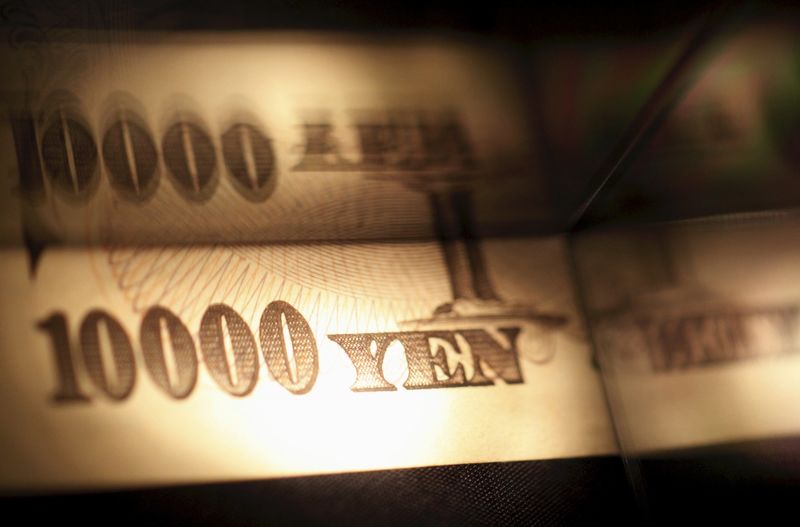By Gertrude Chavez-Dreyfuss
NEW YORK (Reuters) - The yen hit a roughly two-week low against the dollar on Monday after Japan's finance minister said Tokyo was ready to intervene in the currency market if needed, with stronger risk sentiment also easing demand for traditional safe havens such as the Japanese currency.
The yen hit an 18-month high against the dollar last week
That has prompted a ramping-up of intervention talk, with Finance Minister Taro Aso's comments on Monday following remarks last week from Prime Minister Shinzo Abe, who said Japan was watching the yen's movements and would act if necessary.
Many investors believe, however, that the bar for intervention remains high and the comments were meant to talk down the yen.
"While actual currency intervention ahead of a G7 meeting later this month remains unlikely, there is a risk of either currency intervention or BOJ (Bank of Japan) monetary policy easing in the months ahead, a risk that is, at least for now, keeping the yen's upside limited," said Omer Esiner, chief market analyst at Commonwealth Foreign Exchange in Washington.
A recent U.S. Treasury report said "persistent one-sided" intervention by countries to weaken their currencies could result in those with big trade surpluses, such as Japan, being classified as manipulators - the latest sign U.S. officials are uncomfortable with more dollar gains.
Nonetheless, the greenback rose more than 1 percent versus the yen to hit its strongest level since April 28, well clear of last week's low of 105.52 yen. The dollar was last up 1.3 percent at 108.55 yen.
A tentative rise in risk appetite was partly tied to Wall Street's positive tone and a rebound in European stock markets from their worst week since early February.
The dollar index touched a two-week high of 94.132 (DXY), showing a fairly muted reaction to Friday's U.S. jobs report. That put it well above a 16-month trough of 91.919 hit last week. The index was last up 0.3 percent at 94.115.
Also helping the dollar's rebound were remarks form New York Federal Reserve President William Dudley, who said on Friday two U.S. rate hikes this year remained a "reasonable expectation".
Disappointing trade figures from China on Sunday pushed the Australian dollar, often used as a liquid proxy for China plays, to a more than two-month low of US$0.7310

The Aussie dollar was last down 0.8 percent at US$0.7315.